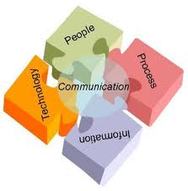 I recently read an excellent blog post by Matthew Farrow, Executive Director Environmental Industries Commission, on Business Green’s website. In this blog Matthew goes on to list the ten things that he’s learned in his in my first decade working in the green policy world. As I read through the blog I realised that we all have lessons learned and insights that we can share to help us learn from each other and to help others along in their sustainability journey. I will start by sharing some of my ‘lessons learned’ and hope that you will join me and add some of your own in the comments below. If I get enough feedback, I will collate a follow up blog to make sure all readers can learn from this exercise. Three key learnings that I would like to share: Sustainability has a lexicon that acts as a barrier to entry, simple language and direct messages are significantly more effective and inclusive. We are all vested in a sustainable future. People often assume sustainability is a lofty ideal and businesses should focus on economic growth and development. Sustainability includes economic viability, and a successful business can only be successful in the longterm once it incorporates sustainability within its four walls. Managing an organisation’s supply chain can can help in managing sustainability effectively, allowing organisations to do this voluntarily is admirable and has led to interesting results. Sometime peer pressure and public opinion drive organisations to manage their supply chain more effectively, but it seems that regulations may be a more effective route. Please share your thoughts and responses! You can email me directly, or comment below. I look forward to engaging with you.
1 Comment
 As more organisations adopt sustainability management practices, the topic of sustainability has risen on the corporate and organisational agenda globally. When sustainability as a concept is integrated within an organisation, this presents an opportunity to do things in a different way, including how communications is developed and implemented. And when starting to implement a sustainability framework, it is important to reflect on the fact that you are essentially embarking on change programme; a new way of working and thinking. Change management with an effective communications and engagement process is part and parcel of any successful sustainability initiative. Communication, which is based on engagement, means that people will understand messages more easily as they feel that they are being listened to, every step of the process. Sustainability communications, in the end, is all about turning high level strategies into manageable, understandable, knowledge bytes that support the delivery of tangible results. In this context, communications plays a pivotal role in integrating and embedding sustainable work practices. It’s well known that a sustainability communications strategy will identify communications objectives, right audiences, the key messages and channels of communication, such as traditional and digital. When developing your sustainability strategy, you should ensure that all sustainability messaging supports and complements your broader corporate communications. Part of effective communications is the ability to involve people rather than merely sending out emails and bulletins. Sustainability communications needs to create a sense of shared responsibility, where each individual plays a role. Developing a shared agenda, that is owned and driven by stakeholders and provides channels for two-way communication, enables work on community critical issues and supports an organisation’s license to grow. Through this ‘new’ approach of engagement and developing a shared agenda, sustainability offers a great opportunity to to positively impact your organisational culture, which in turn affects internal stakeholders and has impact on how you manage your relationships with external stakeholders. You will find that more often than not, sustainability practices work in tandem with people’s personal values. We all want to have a better, brighter future. A cleaner environment and cohesive communities, wherever we live. |
Categories
All
AuthorSandra Anani is passionate about sustainability, with over 19 years’ experience. She has dedicated her career to sustainable development and communications. Archives
November 2022
|

 RSS Feed
RSS Feed
